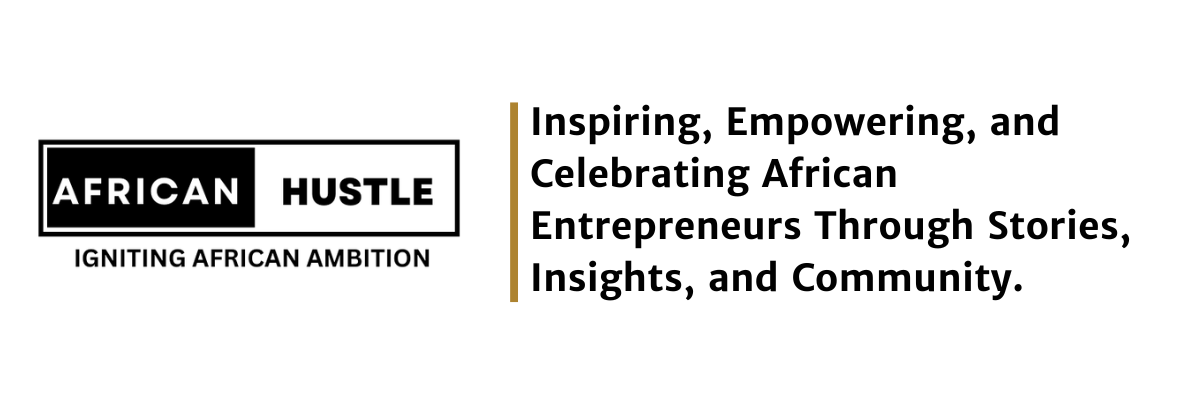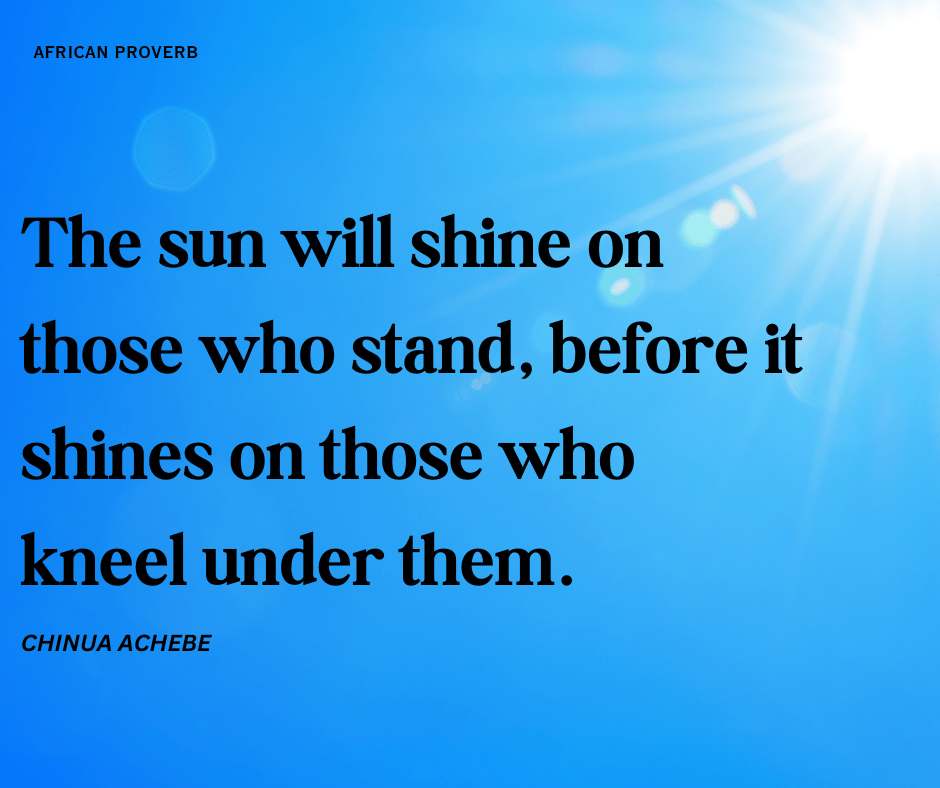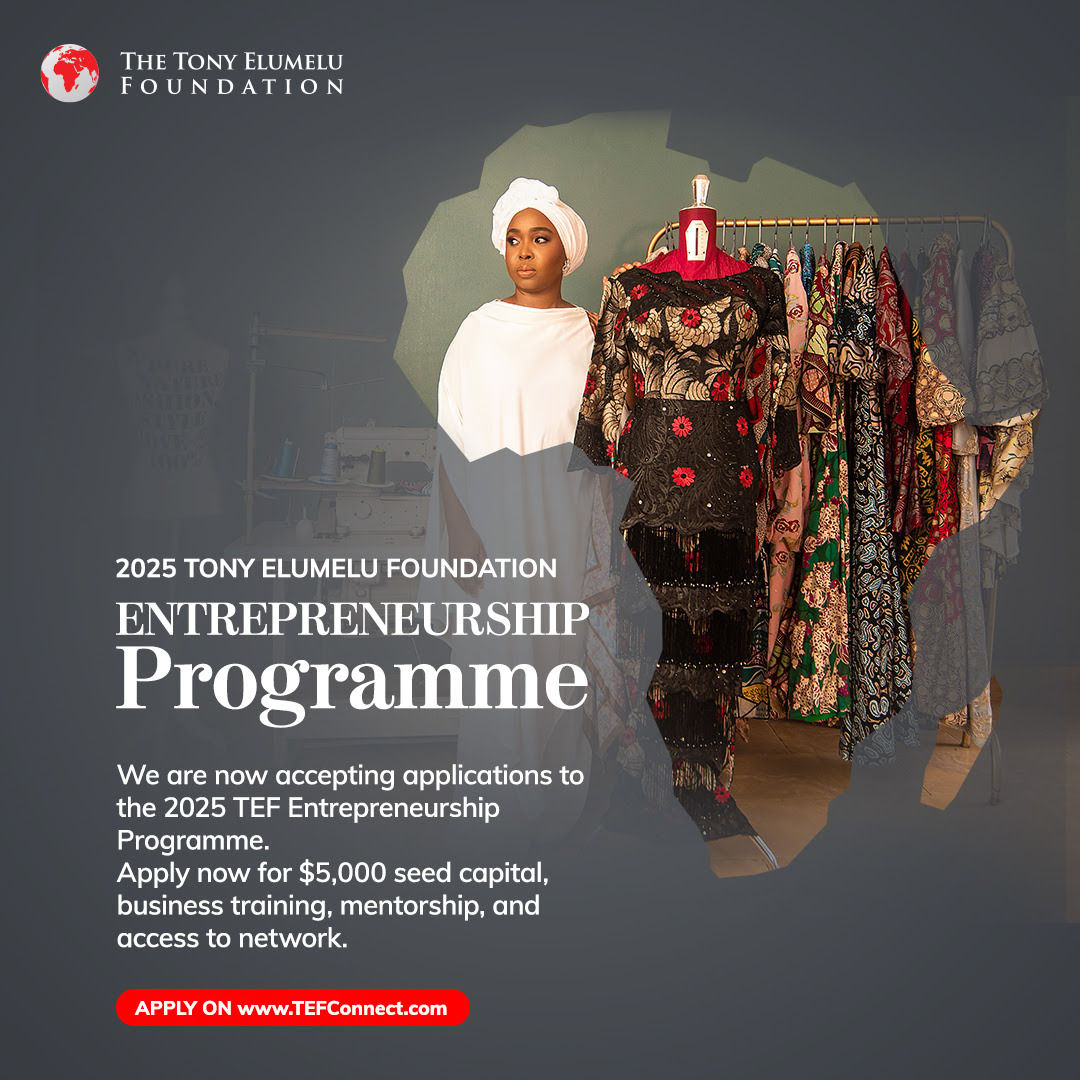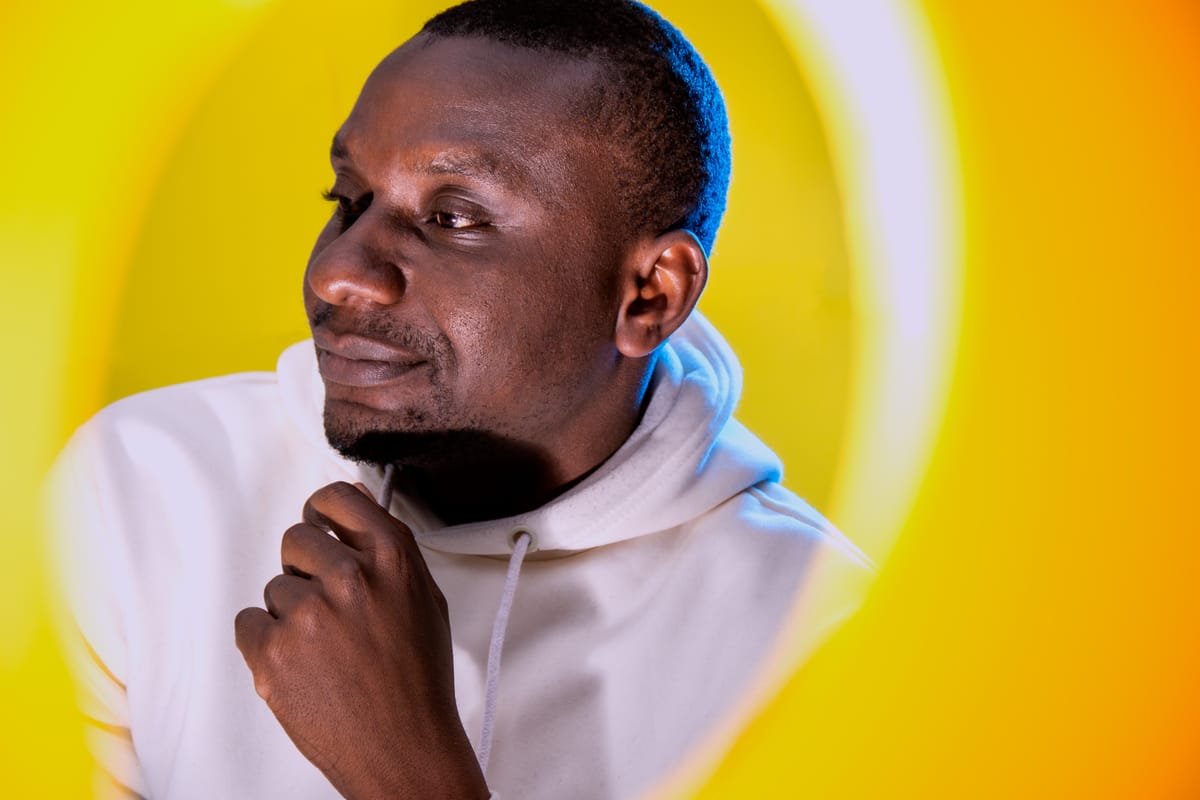
Welcome to African Hustle! Your bi-weekly dose of inspiration and smart insights into African entrepreneurship — featuring real stories about tech, culture, startups, founders, and innovations shaping the future of the continent.

Hollywood made us think the biggest tech innovations come from Silicon Valley. (And Kenya danced right into this propaganda by naming its technology ecosystem Silicon Savannah.) Now enter China’s DeepSeek which on Monday sent Nvidia’s stock skydiving! The once-unshakable dominance of OpenAI and its big spending cronies is under siege! DeepSeek’s rise is a timely reminder that the future of technology is no longer a Western monopoly.
In this Issue:
10 or so Lessons for African Entrepreneurs from China’s Rise.
Local Hero: We meet Napoleon Dzombe a Malawian philanthropist
StartUp To Watch: How an African Startup is reshaping drone deliveries
#ShoutOut: Meet an African key to nanotechnology and fibre optic development.

Main Issue
African politicians have mastered the art of crafting spectacular policies and blueprints. BUT? Of course, there is a BUT, it’s always there whenever you mention something about our dear revolutionary politicians.
Most of these policies never see the light of day after their equally spectacular launches. A tragedy really!
Luckily, we’re not politicians. We are hustlers.
Growing up in Africa, like many kids, I got unhealthy exposure to Western movies, Western fashion, and even Western religion. It felt like the West was the pinnacle of everything — and I swallowed it hook, line and sinker.
Then, in 2003, Robert Mugabe (President of Zimbabwe: 1987-2017) came up with the Look East Policy!!! Looking back, the timing was impeccable.
His policy came before China became the tech and economic juggernaut we know today. It was:
Before Alibaba's record-breaking IPO (2014).
Before ByteDance changed how we interact with social media. (created Tiktok in 2016)
Before China’s high-speed rail network became the largest in the world.
Before BYD Auto became the world’s largest EV maker, surpassing Tesla. (BYD Auto division was founded in 2003)
Before China led in AI, renewable energy, and 5G tech.
Before Huawei started making phones. (Huawei released their first cell phone in 2004)
2003 was the height of the zhing-zhong era when everything from China was considered mediocre and substandard. Mugabe saw something many missed. Successful implementation would’ve allowed Zimbabwe to ride on China’s coattails.
BUT … yeah, the aftermath is a political and business lesson for another day.
What can we learn from looking East? I’m not aiming for political correctness. It’s about real, raw lessons for those of us building businesses from the ground up.
What African Entrepreneurs Can Learn from China's Meteoric Rise
Prioritize Long-Term Vision
China’s rise wasn’t overnight. It was built on deliberate Five-Year Plans focusing on infrastructure, industrialization, and innovation. We spoke about this in our first newsletter of 2025. You have to stop thinking in terms of yearly resolutions. Think beyond quick wins and bread-and-butter hustles. Dream big. Build scalable, sustainable businesses that solve Africa’s real problems.
Consider Strive Masiyiwa, founder of Econet Wireless! He envisioned a connected Africa. Today, Econet is a pan-African giant, proving that long-term vision pays off.
Invest in Locally Relevant Innovation
China started as the “world’s factory” but pivoted to tech innovation with giants like Huawei, Alibaba, and Tencent. These companies focused on China-specific needs before scaling globally. Similarly, African entrepreneurs must innovatively address Africa’s unique challenges in energy, agriculture, healthcare, and logistics. M-Pesa and Ecocash for instance addressed financial inclusivity in a manner no bank or foreign company could ever do. We need more enterprises like that.
Leverage the African Diaspora
The Chinese diaspora was a game-changer, fueling investment, tech transfer, and networking. Even if there were reports of espionage, which currently Tiktok is accused of!!! Africa’s diaspora holds the same potential. People like Dr James Manyika (Zimbabwean), a Senior Vice President of Research, Technology, and Society at Google, who we featured in our #ShoutOut section last week are proof. Use platforms like LinkedIn strategically to connect and collaborate with our diaspora talent.
Whilst we are mulling this, check out Afrobytes(an accelerator working to bridge the gap between the diaspora and African entrepreneurs.
Innovate where there are Limited Resources.
Currently, Chinese AI companies face constraints in the form of increasing US export controls on cutting-edge chips. This was meant to weaken China’s AI capabilities. However, the sanctions are driving startups like DeepSeek to innovate in ways that prioritize efficiency, resource-pooling, and collaboration. Even Huawei’s story is of historic and economic significance — the firm has been explicitly targeted by U.S. sanctions for over five years but has shown innovation decades ahead of its US competitors. We don’t have the resources and an abundance of venture capital funding available to our counterparts in very developed nations, but we have to start somewhere!
Embrace Digital Transformation
China leapfrogged into mobile payments (Alipay), e-commerce (Alibaba), and AI. Similarly, Africa’s mobile-first landscape is ripe for digital innovation. Build scalable solutions to bypass traditional barriers, like banking infrastructure.
Learn, Copy, Iterate, Adapt and Collaborate
Politely speaking, China initially borrowed foreign technology but adapted it to local needs. Some can say they stole it!!! African entrepreneurs must collaborate globally but tailor solutions to Africa. Don’t just import ideas — make them work for us. WhatsApp does not work in China, they have WeChat. Google does not work. They have Baibu. Almost all Google apps, including Gmail, Google Maps, and YouTube do not work due to government restrictions. Facebook, Instagram and X are also blocked. (When you see this, you at least start to see why Trump resents Chinese platforms like Tiktok skimming billions in his country under his watch!)
Harness Africa’s Youthful Market
Yes, Africa is a continent and not a country like China. You have to start looking beyond the colonial borders at the vast potential of the African market when combined. China’s massive population fueled domestic growth before scaling globally. Africa’s youthful population is an untapped market for testing innovative solutions. Build for Africa first; scale globally later.
Focus on Education and Skills
China invested in STEM and technical education to future-proof its workforce. African entrepreneurs can’t wait for governments to act — invest in upskilling through mentorship, training programs and accelerators.
An opportunity I see here for entrepreneurs is partnering with tertiary institutions to offer coding boot camps. These will equip young Africans with in-demand tech skills. Such initiatives can create a pipeline of talent for Africa’s digital economy.
Seize Global Opportunities
Sometime last week, I came across an X post encouraging African entrepreneurs to sell produce to the UK and beyond.
China leveraged global trade opportunities. African entrepreneurs should maximize platforms like the African Continental Free Trade Area (AfCFTA) to open markets and scale businesses across borders.
Advocate for Pro-Business Policies
When you stay quiet, nothing happens.
A child that does not cry will die in the carrier
China’s government championed policies that favoured innovation and business growth. When are governments are quiet, we have to lobby them into action. Entrepreneurs can’t ignore policy; lobby for reforms to make doing business easier and reduce red tape.
Taking a leaf off China, the Rwandan government’s pro-business reforms have made Rwanda one of the easiest places to do business in Africa. Entrepreneurs can learn from such models and push for similar changes in their countries.
Own Your Narrative
China mastered its global narrative, reshaping stereotypes. It is as much an engine of propaganda, as much as America. Africa must do the same. We need to highlight our innovations and successes and show the world that Africa isn’t a dark continent but is the future.
Looking East is not about copying China. It’s about understanding how they turned challenges into opportunities. We can do the same — if we focus on what works for us.

Local Hero

Napoleon Dzombe
Dzombe is a Malawian businessman and philanthropist. One of his notable projects is constructing a man-made lake in his local community. The lake serves multiple purposes, including irrigation and tourism.
Dzombe established an agricultural school, which enrols families from across Malawi to train them in modern farming methods. The institution provides accommodation and daily necessities during their stay, ensuring that participants can focus entirely on their education.
Additionally, Dzombe founded a hospital which offers medical services to the community without seeking personal profit.
His efforts extend to industrial development as well. Dzombe has invested in various sectors, including rice milling, sugar production, and food processing. These ventures not only add value to local agricultural products but also create numerous employment opportunities for villagers.

Proverb Of The Week

The sun will shine on those who stand before it shines on those who kneel under them.
Those who take initiative will reap rewards before those who hesitate or do nothing.

Quiz/Trivia
Last Week Recap: What is the name shared by the currency units of Algeria and Tunisia?
Answer: Dinar
Which African country is the largest producer of cocoa beans, a key ingredient in chocolate?

Did You Know?
Mansa Musa, the 14th-century emperor of Mali, is widely considered the wealthiest person in history. His wealth came from gold, ivory, and salt, which made Mali the wealthiest country in Africa.

StartUp To Watch
Not another delivery company, this is a zipline into the future of logistics!
Since its groundbreaking launch in 2016, Zipline has redefined the future of logistics and healthcare delivery.
What began as a life-saving initiative to transport blood and medical supplies in Rwanda has evolved into a global force, transforming how essential goods — from food and retail products to agriculture and animal health supplies — reach communities in need.
Today, Zipline operates in eight countries across four continents, with an impressive record of over 80 million commercial autonomous miles flown, making it a leader in autonomous delivery systems.
Zipline’s innovative approach is powered by two cutting-edge platforms: one designed for long-range delivery and the other for precise home delivery. This dual system has enabled Zipline to serve thousands of homes, hospitals, and businesses across the United States, Rwanda, Ghana, Nigeria, Cote d’Ivoire, Kenya, and Japan. Whether delivering critical vaccines to remote clinics or groceries to urban doorsteps, Zipline’s technology ensures speed, reliability, and efficiency.
A recent peer-reviewed study confirmed that Zipline’s autonomous drone logistics system is not only saving lives and preventing disease but also represents the most cost-effective public health intervention for increasing immunization rates. By slashing delivery times and overcoming infrastructure challenges, Zipline is bridging the gap between life-saving resources and the people who need them most.

Community
Opportunity Alert! Apply for the TONY ELUMELU FOUNDATION (TEF) ENTREPRENEURSHIP PROGRAMME.
The programme is open to all African entrepreneurs, 18 years and older, who have innovative ideas or businesses (not older than five years), in any business sector.

"How-to-apply" Video Guide:
Apply here: www.TEFConnect.com

Billboard
Get celebrated. Each week, we’ll feature an African entrepreneur, highlighting what they do, where they’re based, and their links. This is your chance to showcase your hustle to a thriving community of dreamers, doers, and changemakers! Your story deserves a stage — let it be this Billboard.
To share, drop us an email with the information in this format: Name:
Name Of Your Company:
What You Do: [Two lines describing your work/business]
Location: [City/Country]
Links: [Website link] | [Social Media]
Picture/Logo: [Optional]

#ShoutOut

Thomas Owusu Mensah (1950 – 27 March 2024)
Image By Owula kpakpo - Own work
Thomas Owusu Mensah (1950 – 2024) was a Ghanaian chemical engineer and inventor who contributed to the development of fibre optic manufacturing and nanotechnology. He had 14 patents and was inducted into the US National Academy of Inventors in 2015. In 2017, Mensah served as editor-in-chief of the textbook Nanotechnology Commercialization. His groundbreaking work is more recognized in the U.S. than in Africa.
Enjoyed this post? Share it with someone who might find it helpful and encourage them to subscribe!
If we missed something, we’d love to hear from you — hit reply and let us know what insights you want us to dive into next.
And if this email was forwarded to you, you can sign up here!

